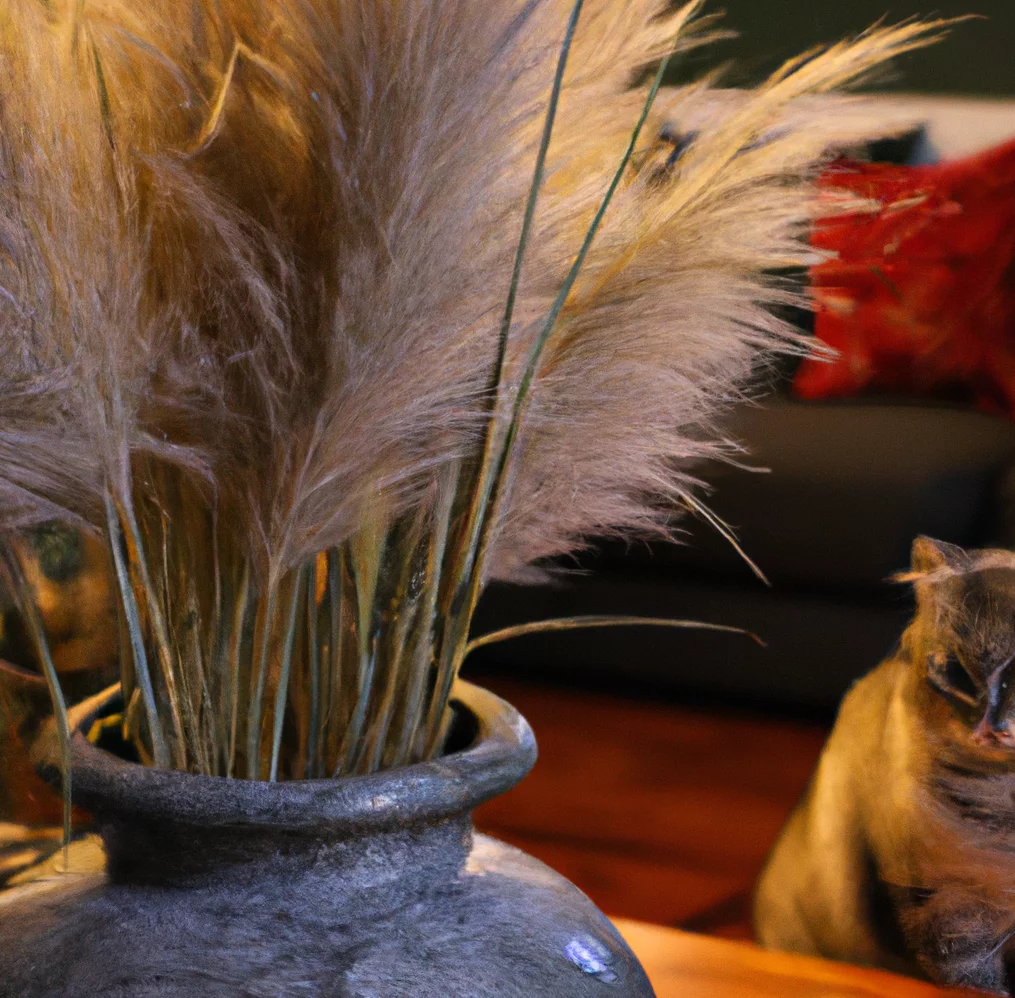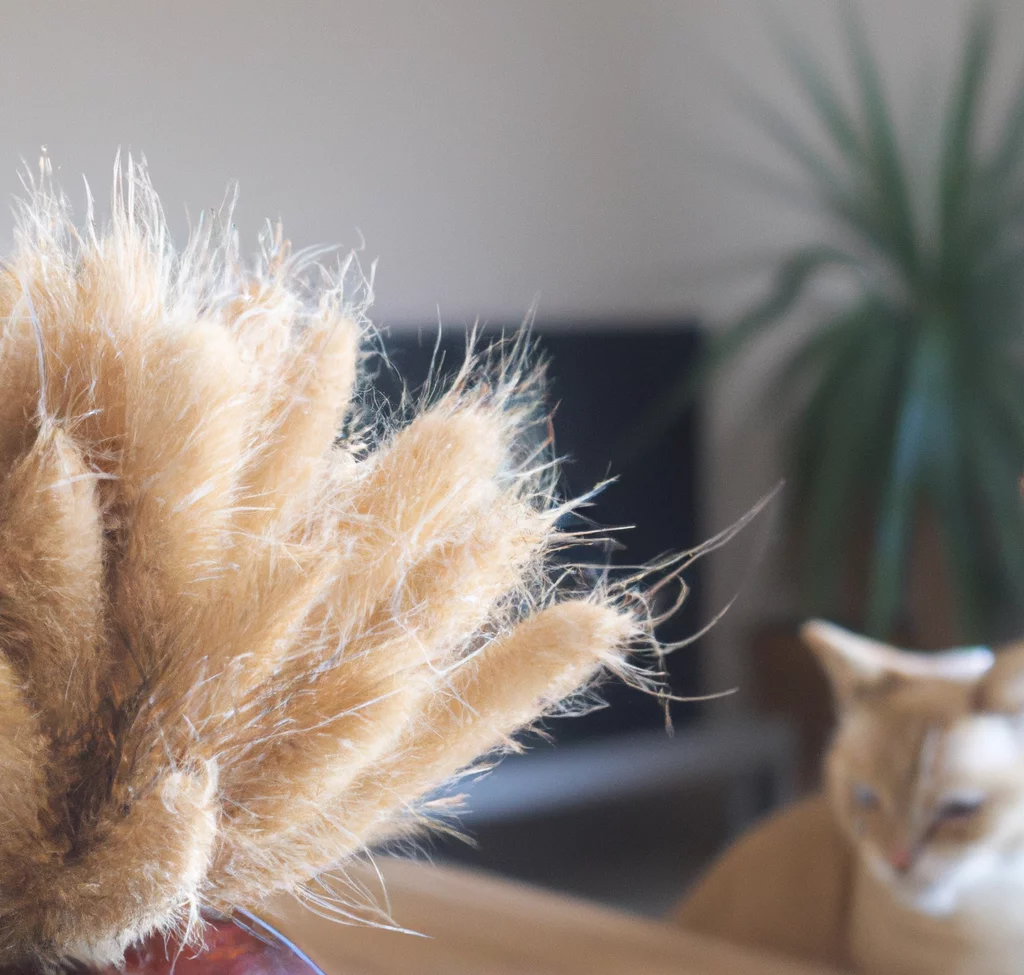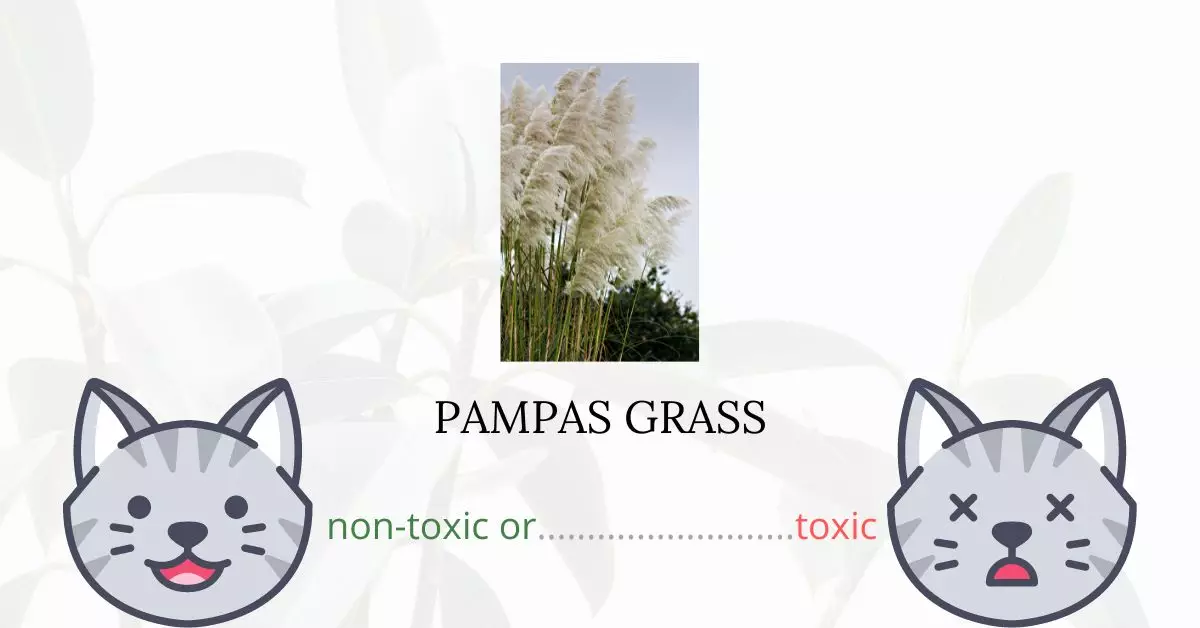Pampas grass is not considered toxic to cats. However, it is essential to note that ingestion of any plant material can lead to uncomfortable gastrointestinal symptoms. While Pampas Grass is not specifically listed as toxic, the American Society for the Prevention of Cruelty to Animals (ASPCA) emphasizes that consuming any plant material can cause vomiting and gastrointestinal upset in both cats and dogs, though these symptoms are generally not life-threatening.
This article is the result of a collaborative effort with a team of experienced DVMs (doctors of veterinary medicine). Through their expertise and contributions, we ensure that we present accurate and current information regarding the potential risks various plants, including Pampas Grass, might pose to cats. Our research also extends to high-authority sources such as ASPCA and PetMD to ensure comprehensive coverage on the topic.
Can Cats Eat Pampas Grass?

Pampas grass is typically risk-free for cats, except for any potential risks it may present if swallowed, such as choking.
Carnivorous animals like cats and other omnivores eat diets that are high in protein. As a result, eating a lot of plants should be avoided. Some plants are edible to cats, but you should only ever give them to them sometimes.
You should also be aware of the products you use on your plants. For instance, commercial insecticides and fertilizers may leave dangerous chemical residues on plants. These leftovers might poison your cat and put them in danger of passing away if they were consumed or inhaled by them.
What is a Pampas Grass?

The Pampas region of southern South America, where it gets its name, is home to the flowering plant species known as Pampas grass (Cortaderia selloana), which belongs to the Poaceae family. In North America’s warm winter regions, it has spread like wildfire. Fast-growing pampas grass can grow in vast masses along roadways, cliffs, riverbanks, and other disturbed regions that have been affected by anthropogenic or natural disturbances. Pampas grass has the potential to degrade native plant habitats and supplant them, decreasing biodiversity. The birds that eat the blade-like leaves could sustain bodily injury.
Keeping Cats Away From Pampas Grass

Cats are naturally put off by a variety of plants. For a lingering smell that deters cats, plant a lot of them in your garden. But exercise caution. Many smells that are frequently suggested as cat deterrents have the potential to be poisonous to people and animals if consumed, and they may also irritate the skin when applied. Although they are not dangerous to animals, rosemary and curry plants can deter cats.
Cat-repelling plants don’t always work to deter cats, much like other fragrances. What deters one cat might not deter another.
Plants to Avoid For Your Cats
If you are a cat owner and unsure if the plants growing in your yard are harmful to your cats, check out this list of toxic plants for cats. You can also check our list of non-toxic plants for cats.





